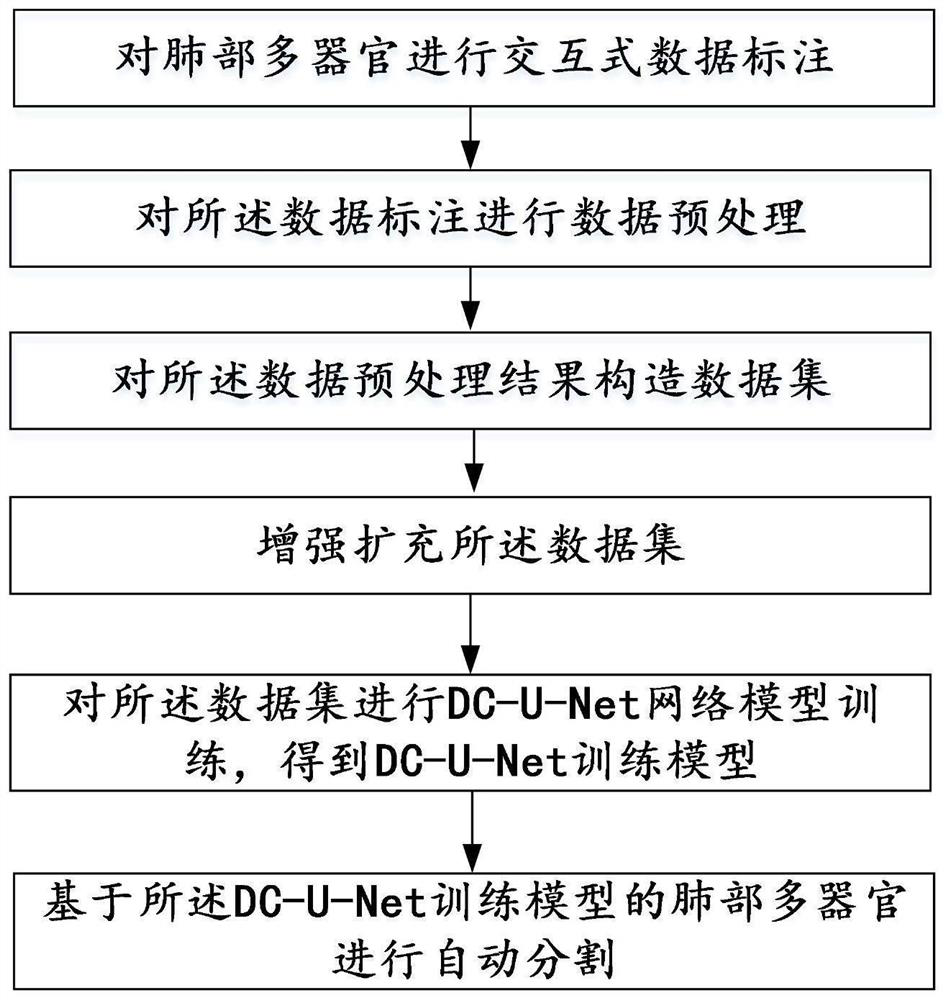Method for synchronously segmenting multiple organs of lung
A multi-organ and lung technology, applied in the field of medical image processing and analysis, can solve the problems of frequent manual interaction, inability to achieve synchronous segmentation of multiple organs, slow speed, etc., to reduce manual interaction process, low memory usage rate, and enhance edge information effect
- Summary
- Abstract
- Description
- Claims
- Application Information
AI Technical Summary
Problems solved by technology
Method used
Image
Examples
Embodiment Construction
[0074] In order to make the purpose, technical solutions and advantages of the embodiments of the present invention more clear, the technical solutions in the embodiments of the present invention will be clearly and completely described below in conjunction with the accompanying drawings in the embodiments of the present invention. Obviously, the described embodiments It is a part of embodiments of the present invention, but not all embodiments. Based on the embodiments of the present invention, all other embodiments obtained by persons of ordinary skill in the art without making creative efforts belong to the protection scope of the present invention.
[0075] Such as figure 1 as shown, figure 1 A flow chart of a method for synchronous segmentation of multiple organs of the lung according to an embodiment of the present invention is shown, and a method for synchronous segmentation of multiple organs of the lung includes:
[0076] Step a: Interactive data labeling of multipl...
PUM
 Login to View More
Login to View More Abstract
Description
Claims
Application Information
 Login to View More
Login to View More - R&D
- Intellectual Property
- Life Sciences
- Materials
- Tech Scout
- Unparalleled Data Quality
- Higher Quality Content
- 60% Fewer Hallucinations
Browse by: Latest US Patents, China's latest patents, Technical Efficacy Thesaurus, Application Domain, Technology Topic, Popular Technical Reports.
© 2025 PatSnap. All rights reserved.Legal|Privacy policy|Modern Slavery Act Transparency Statement|Sitemap|About US| Contact US: help@patsnap.com



